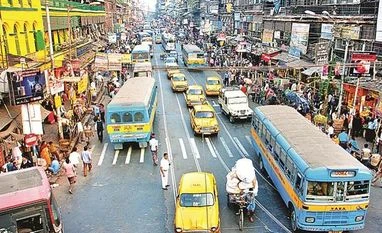After redBus cracked open the online ticketing market for bus travel, another set of brands is looking to reorganise the way Indians board their buses. In what is being dubbed as the uber-isation of the bus market, Europe’s FlixBus, home grown travel marketplace RailYatri and a Gurgaon-based start-up Shuttl are test-driving their brands around the challenges of a diesel-spewing, fragmented road travel ecosystem.
The newly launched and to-be launched bus services follow an aggressive thrust by redBus; the online ticket marketplace has M S Dhoni as brand ambassador and has recently launched an ad campaign apart from several on-ground communication initiatives. According to their research, India’s intercity bus transport with seat reservation is worth approximately $4 billion and the market is growing annually at about 12-15 per cent. There is also a huge unorganised, un-reserved market.
Clearly the potential is large but inter-city bus travel has not quite grippd the attention of start-ups. Such services are still largely government-owned and managed. However, this is changing.
Recently FlixBus, Europe’s largest intercity bus network, announced plans for India. The company does not own any buses nor does it pay the drivers. Instead it provides a standardised service and operational support to help with scheduling, and ticketing, among other things.
Less than a year ago, RailYatri, an app-based travel marketplace made its way down the same road. It launched IntrCity in March 2019 and like FlixBus is focusing on convenient, clean and easy travel. Shuttl a start-up still in its infancy plies a slightly different route, focusing on daily commuters who cover large distances.
“The long distance bus market has to take into account many problems which are unique to India alone. For example, women safety is a concern. We are trying to tackle this issue by offering GPS tracking services and CCTV cameras. Our mission is to uplift the bus travel experience and integrate it with train travel,” says Manish Rathi, CEO and co-founder RailYatri.
The buses that these new firms offer are a far cry from the crumbling vehicles that state governments run—both offer buses equipped with toilets, charging points and wifi among other facilities. “The branding of long distance bus travel in India has to be focused on convenience. That would be the key differentiation strategy,” said N Chandramouli, CEO, TRA Research.
While ease of travel is a key element of the pitch, the new companies are also keeping a close eye on ticket prices, given that much of the country’s long distance commuters are budget travellers. IntrCity said that its pricing is comparable to train travel. FlixBus, positioned as a cheap alternative to plane or train travel in Europe, said that in India, comfort and convenience, rather than price, will be its unique selling points.
“For the likes of Flixbus or Railyatri, all branding and communication has to focus on problem-solution, choice, flexibility, benefits, punctuality, more routes, polite service, customer care and better infrastructure. Each of the above will need to be reflected in the branding strategy to build differentiation and possibly a perceived premium,” said Sandeep Goyal, Chairman, Mogae Media.
While the new brands have the advantage of novelty and better service, experts believe that they are up against a big task. Mostimportantly these buses will have to combat a host of local and small-time operators who can cut prices down to the bare minimum. RailYatri data show that there are more than 5000 bus operators operating 500,000 buses.
On the flip side, demand for bus travel is also growing phenomenally. RailYatri started with two buses. In less than a year, it runs a fleet of 84 and has tied up with about 18 bus operators. “The bus market in India can be categorised between mature markets and emerging markets. In mature markets, the bus operators including state-owned busses, compete with one another to offer high quality services at competitive prices. The bus inventory provides a host of options to passengers ranging from luxury to sleeper buses, AC or non-AC, timings and price points,” said a redBus spokesperson.
The fact is that India is an under-penetrated market, say the brands and sector experts. And to extract maximum leverage from their presence here, IntrCity and Flixbus will need to nurture and develop the emerging markets.
Unlock 30+ premium stories daily hand-picked by our editors, across devices on browser and app.
Pick your 5 favourite companies, get a daily email with all news updates on them.
Full access to our intuitive epaper - clip, save, share articles from any device; newspaper archives from 2006.
Preferential invites to Business Standard events.
Curated newsletters on markets, personal finance, policy & politics, start-ups, technology, and more.
)